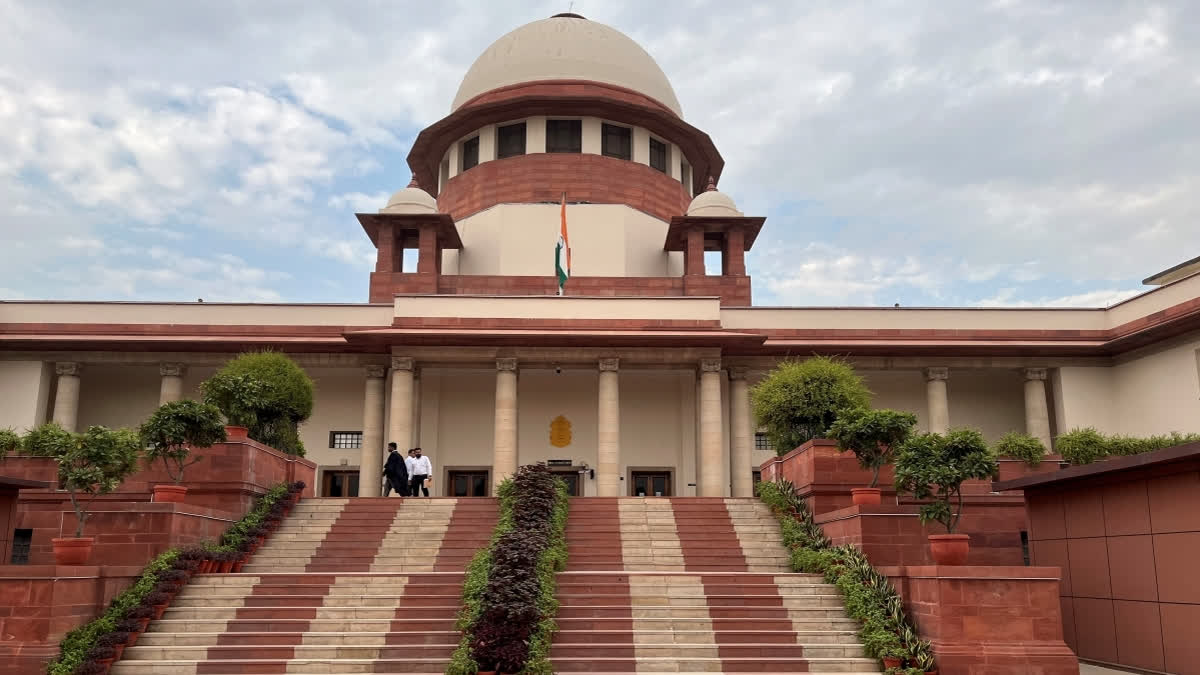New Delhi:As the Supreme Court upheld the abrogation of Article 370 on Monday, Justice Sanjiv Khanna who was part of the 5-Judge Constitution bench that gave the landmark judgment, said the creation of a Union Territory from a state has to be justified by giving very strong and cogent grounds.
“Union Territories are normally geographically small territories or may be created for aberrant reasons or causes. Conversion of a State into Union Territory has grave consequences, amongst others, it denies the citizens of the State an elected state government and impinges on federalism," Justice Khanna said in his own judgment while concurring with the reasoning of Chief Justice of India D Y Chandrachud, author of lead judgment and Justice Kaul.
Justice Khanna, in his separate and concurring judgement, said: “Conversion/creation of a Union Territory from a State has to be justified by giving very strong and cogent grounds. It must be in strict compliance with Article 3 of the Constitution of India”. Article 3 deals with the power of formation of new States and alteration of areas, boundaries or names of existing States.
The Supreme Court judge said Article 370 was enacted as a transitional provision and did not have a "permanent character". “The abrogation of Article 370 does not negate the federal structure, as the citizens living in Jammu and Kashmir do and will enjoy the same status and rights as given to citizens residing in other parts of the country”, he said.
Justice Khanna said: “Paragraph (2) of C.O. 272 (presidential order) by which Article 370 was amended by taking recourse to Article 367 is ultra vires and bad in law, albeit can be sustained in view of the corresponding power under Article 370(1)(d). Most importantly, Article 370 has been made inoperative in terms of clause (3) to Article 370. Lastly, C.O. 273 is valid”.
Justice Khanna agreed with the observations recorded by CJI taking record of the statement on behalf of the Union of India for restoration of the statehood of the Union Territory of Jammu and Kashmir, while upholding the creation of the Union Territory of Ladakh.
Article 370 verdict coverage:
- 'Culmination of integration process': Top 10 quotes from Supreme Court's landmark verdict on Article 370 abrogation
- Article 370 temporary, order to scrap J&K special status constitutionally valid: SC
- Article 370 and its abrogation: Timeline of J&K's special status from origin to scrapping
- 'Sad but not unexpected, particularly in...': Mirwaiz Umar Farooq on Article 370 verdict
- Article 370 was a feature of asymmetric federalism and not sovereignty: SC
